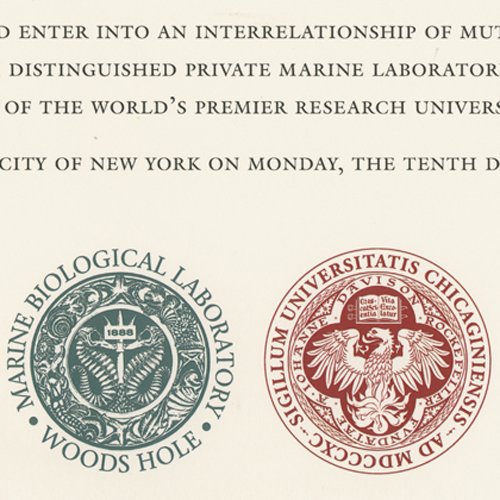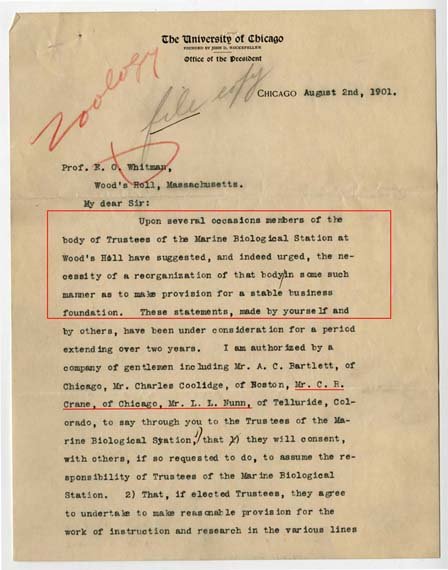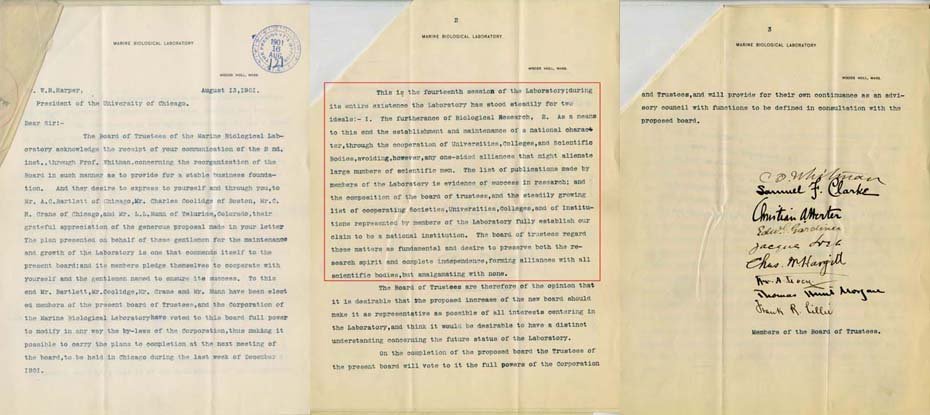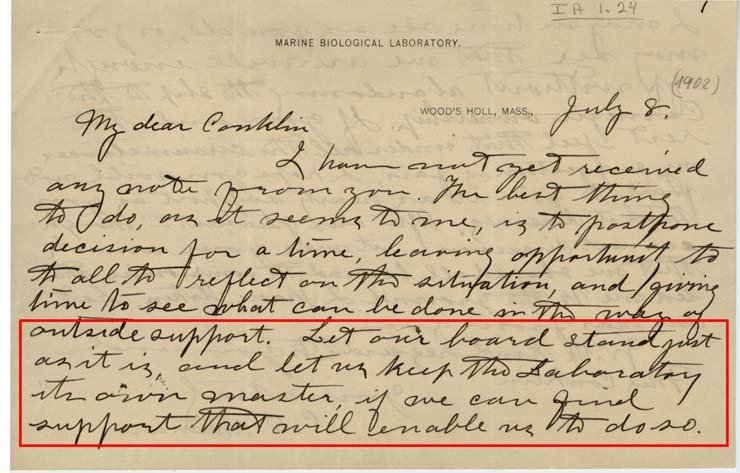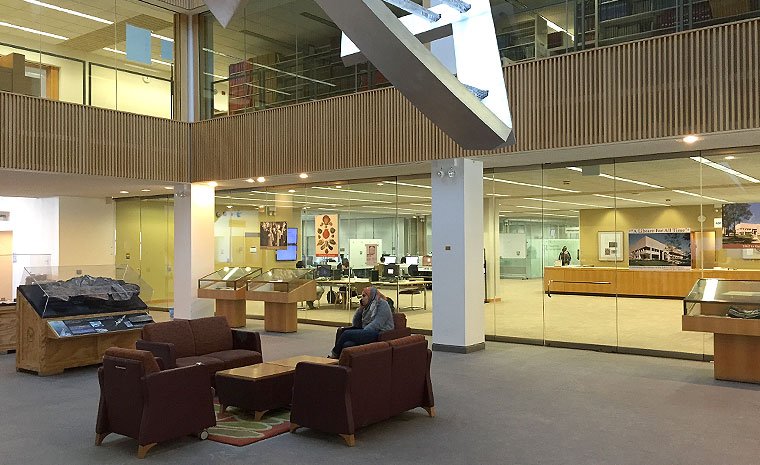The Chicago Plan
In response to concerns at the MBL about its financial stability, Whitman approached President Harper, who acted as an agent to bring together several wealthy individuals to serve on a reorganized Board of Trustees (Nunn, related to Whitman by marriage, was already on the Board). Each committed to giving the Laboratory $10,000 the following January. A handwritten note on the back of the final page of this letter indicates that both Whitman and Frank R. Lillie, Whitman’s protégé who would succeed him at both the MBL and the University, attended the meeting where these conditions were worked out.
The MBL Board quickly responded affirmatively to President Harper’s letter and the proposed “Chicago plan,” while at the same time strongly stating the Laboratory’s desire to remain independent of any one institution. Eventually the Chicago plan was rejected, in part out the concerns about independence. Nevertheless, Charles Crane (who was Frank Lillie’s brother-in-law) joined the MBL Board and became a major benefactor of the institution.
The rejection of the Chicago plan did nothing to solve the financial crisis of the institution. As an alternative, the MBL formally agreed to affiliate with the Carnegie Institution without realizing all the implications. When it became clear that the affiliation would convert the Laboratory to a branch of Carnegie, and that all educational programs would end, the members began to back out of the agreement. In October 1902 Whitman published an article in Science entitled “The Impending Crisis in the History of the Marine Biological Laboratory” lamenting the loss of independence:
"The proposition to merge the laboratory in another institution after fifteen years’ struggle for independent existence, at a moment when a strong financial support was on the point of realization, could hardly be expected to satisfy those who had led the struggle, or those who had given the cause unrequited aid and never-failing sympathy. I venture to say that the personal sacrifices already made in the development of the laboratory, the work it has done in research and instruction, the example it has given of the efficacy of cooperation in science, the ideals it has upheld, the national character of its organization, the promising increase of its financial support, all entitle it to hold its independence above any price."
Science 16(405):530, October 3, 1902.
The Laboratory managed to withdraw from the affiliation agreement with the Carnegie Institution, negotiating instead three successive $10,000 payments in exchange for extensive summer research space for Carnegie investigators. Whitman, soured by the struggles over the Chicago plan and the Carnegie agreement, gradually withdrew from his administrative role at the MBL, formally resigning in 1908 and dying in 1910.
Charles Otis Whitman Collection, Box 1. Special Collections Research Center. The University of Chicago Library.
After the agreement to affiliate with the Carnegie Institution, Whitman expressed his extreme displeasure and fears in a handwritten note to Edwin Conklin, a Princeton embryologist and longstanding colleague of Whitman’s at the MBL. Whitman writes: “Let our board stand just as it is, and let us keep the Laboratory as its own master, if we can find the support that will enable us to do so.”
